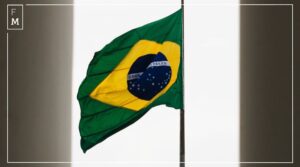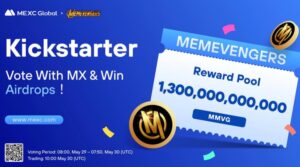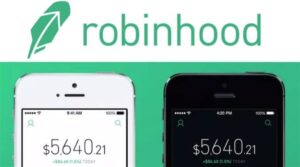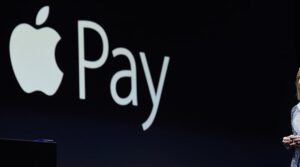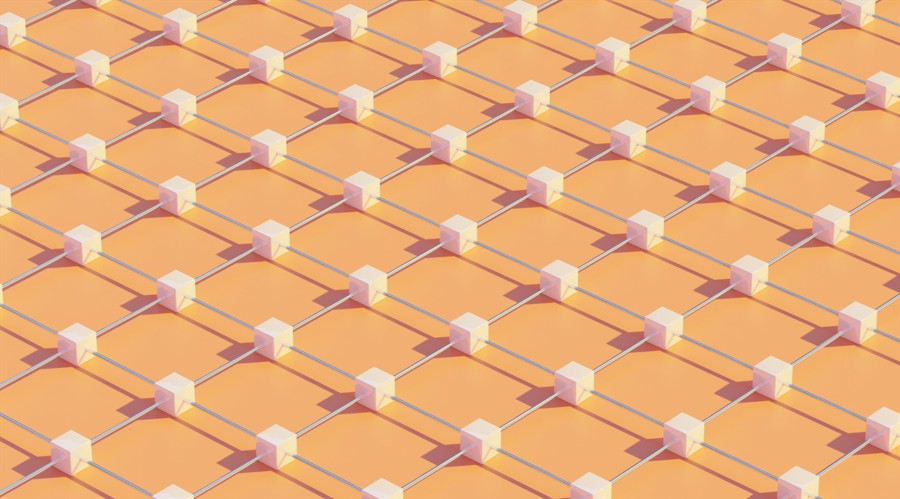
Decentralized
Autonomous Organizations, or DAOs, have emerged as a game-changing notion in
the ever-changing landscape of blockchain technology. In this article, we will
define DAOs, delve into their basic concepts, and explain their essential
characteristics, benefits, and the role of blockchain technology in their
governance.
A DAO, or
Decentralized Autonomous Organization, is a digital entity that works
autonomously through code, allowing its members to collaboratively rule and
make decisions. It runs on a blockchain, which is a distributed ledger system,
and follows predetermined rules without the need for centralized control.
Understanding
Blockchain Governance
The goal behind
DAOs is to eliminate the necessity for traditional intermediaries and central
authorities. To facilitate decision-making and the administration of assets,
they use smart contracts, which are self-executing code on a blockchain. The
ultimate goal is to establish an organization that is trustless, transparent,
and community-driven.
- Transparency: Because DAOs run on a public blockchain, its decision-making and
transactions are completely transparent. - Autonomous
Governance: Once established, DAOs do not require human interaction to carry
out decisions, eliminating the possibility of corruption or manipulation. - Global
Accessibility: DAOs are available to anybody with an internet connection,
promoting inclusion and cross-border collaboration. - Efficient
Decision-Making: DAOs use smart contracts to automate voting and
decision-making processes, resulting in more efficient governance. - Immutable
Rules: DAO rules and agreements are encoded in smart contracts, which makes
them tamper-proof and robust.
Recognizing
Blockchain Governance
DAOs rely on
blockchain technology to provide the infrastructure for their functioning.
An Overview
of Blockchain Technology
Blockchain is a
distributed ledger technology that assures security, transparency, and
immutability by recording transactions across several computers. Each block
comprises a list of transactions that cannot be changed once added to the
chain.
Blockchain’s
Role in DAOs
Blockchain
technology is essential for facilitating the main operations of DAOs. It lays
the groundwork for decentralized consensus, guaranteeing that transactions and
decisions are validated by a network of nodes rather than a centralized
authority. This decentralized ledger ensures the integrity of the
organization’s activities and the trustworthiness of its data.
Decentralization
in DAOs
Decentralization
is a key component of DAOs, providing numerous benefits but also bringing
obstacles.
By dispersing
the decision-making authority and data over a network of nodes, blockchain
technology accomplishes decentralization. On the blockchain, smart contracts
automate operations, ensuring fairness and transparency without the use of
intermediaries.
Smart
Contracts and DAOs
While
decentralization has many advantages, it also has drawbacks, such as
scalability issues, potential security vulnerabilities, and difficulties in
resolving conflicts in the absence of centralized authority.
DAOs rely
heavily on smart contracts, which are self-executing programming that automates
contract execution.
Smart Contracts
Explained
Smart contracts
are digital agreements that execute actions automatically when predefined
circumstances are satisfied. They do away with the need for middlemen and
ensure transparent, trustless relationships.
Smart
Contracts’ Role in DAOs
The rules,
agreements, and decision-making processes in DAOs are specified through smart
contracts. They allow members to automatically vote, distribute prizes, and
manage assets.
Benefits of
Smart Contracts in DAOs
- 1. Trustless Execution: Because code is immutable and
transparent, smart contracts may execute operations without relying on trust. - 2. Efficiency:
Automation reduces administrative costs by streamlining decision-making and
asset management.
Challenges
and outlook of Decentralized Autonomous Organizations
The future of
DAOs is bright, yet it is fraught with obstacles and uncertainty.
Regulatory
Issues
Regulatory
organizations are still debating how to classify and supervise DAOs, creating
uncertainty and the possibility of legal challenges.
It is important to note
that the regulatory environment for cryptocurrencies, blockchain technology,
and related entities, including DAOs, can change rapidly. As such, for example,
checking the latest U.S. Securities and Exchange Commission (SEC) statements,
press releases, or official publications for any updates on your jurisdiction’s
regulatory institution’s stance regarding DAOs.
Additionally, consulting legal
experts with expertise in cryptocurrency and blockchain regulations can provide
further insights into the current regulatory landscape for DAOs.
Concerns About
Security
DAOs become
more appealing targets for hackers as their complexity and value increase. It
is critical to have strong security measures in place.
Potential
Future Growth
DAOs’ potential
applications go beyond finance and include governance, supply chain, and other
areas. Addressing obstacles and regulatory frameworks will be critical to their
growth.
Conclusion
Decentralized
Autonomous Organizations are a paradigm change in how organizations can
function in the absence of traditional hierarchies. They use blockchain
technology and smart contracts to facilitate trustless, transparent, and
efficient governance. While they have many advantages, they also have certain
drawbacks and uncertainties, making them an exciting but growing frontier in
the field of decentralized finance.
FAQ
Can anyone participate in a DAO?
Yes, anyone
with an internet connection can usually participate in a DAO, as long as they
have the necessary DAO tokens or assets. Token holders’ participation
frequently entails voting on proposals, contributing to the aims of the group,
and potentially earning incentives.
Are DAOs legally recognized
entities?
DAO legal
recognition differs by jurisdiction. They may not have a clear legal status in
some countries, whereas they may be recognized as a type of organization in
others. It is critical to seek the advice of legal specialists who are familiar
with blockchain and cryptocurrency rules in your unique country.
How do DAOs work at a high level?
DAOs use blockchain based technology to form a
decentralized, autonomous organization regulated by smart contracts. DAO
members hold governance tokens that represent their voting power and ownership
stake. They can make and vote on choices such as how to allocate finances and
carry out actions. Smart contracts then execute these decisions automatically
depending on established rules stored in the contract. This eliminates the need
for traditional intermediaries and central authorities, resulting in an
organization that is trustless and transpar
Decentralized
Autonomous Organizations, or DAOs, have emerged as a game-changing notion in
the ever-changing landscape of blockchain technology. In this article, we will
define DAOs, delve into their basic concepts, and explain their essential
characteristics, benefits, and the role of blockchain technology in their
governance.
A DAO, or
Decentralized Autonomous Organization, is a digital entity that works
autonomously through code, allowing its members to collaboratively rule and
make decisions. It runs on a blockchain, which is a distributed ledger system,
and follows predetermined rules without the need for centralized control.
Understanding
Blockchain Governance
The goal behind
DAOs is to eliminate the necessity for traditional intermediaries and central
authorities. To facilitate decision-making and the administration of assets,
they use smart contracts, which are self-executing code on a blockchain. The
ultimate goal is to establish an organization that is trustless, transparent,
and community-driven.
- Transparency: Because DAOs run on a public blockchain, its decision-making and
transactions are completely transparent. - Autonomous
Governance: Once established, DAOs do not require human interaction to carry
out decisions, eliminating the possibility of corruption or manipulation. - Global
Accessibility: DAOs are available to anybody with an internet connection,
promoting inclusion and cross-border collaboration. - Efficient
Decision-Making: DAOs use smart contracts to automate voting and
decision-making processes, resulting in more efficient governance. - Immutable
Rules: DAO rules and agreements are encoded in smart contracts, which makes
them tamper-proof and robust.
Recognizing
Blockchain Governance
DAOs rely on
blockchain technology to provide the infrastructure for their functioning.
An Overview
of Blockchain Technology
Blockchain is a
distributed ledger technology that assures security, transparency, and
immutability by recording transactions across several computers. Each block
comprises a list of transactions that cannot be changed once added to the
chain.
Blockchain’s
Role in DAOs
Blockchain
technology is essential for facilitating the main operations of DAOs. It lays
the groundwork for decentralized consensus, guaranteeing that transactions and
decisions are validated by a network of nodes rather than a centralized
authority. This decentralized ledger ensures the integrity of the
organization’s activities and the trustworthiness of its data.
Decentralization
in DAOs
Decentralization
is a key component of DAOs, providing numerous benefits but also bringing
obstacles.
By dispersing
the decision-making authority and data over a network of nodes, blockchain
technology accomplishes decentralization. On the blockchain, smart contracts
automate operations, ensuring fairness and transparency without the use of
intermediaries.
Smart
Contracts and DAOs
While
decentralization has many advantages, it also has drawbacks, such as
scalability issues, potential security vulnerabilities, and difficulties in
resolving conflicts in the absence of centralized authority.
DAOs rely
heavily on smart contracts, which are self-executing programming that automates
contract execution.
Smart Contracts
Explained
Smart contracts
are digital agreements that execute actions automatically when predefined
circumstances are satisfied. They do away with the need for middlemen and
ensure transparent, trustless relationships.
Smart
Contracts’ Role in DAOs
The rules,
agreements, and decision-making processes in DAOs are specified through smart
contracts. They allow members to automatically vote, distribute prizes, and
manage assets.
Benefits of
Smart Contracts in DAOs
- 1. Trustless Execution: Because code is immutable and
transparent, smart contracts may execute operations without relying on trust. - 2. Efficiency:
Automation reduces administrative costs by streamlining decision-making and
asset management.
Challenges
and outlook of Decentralized Autonomous Organizations
The future of
DAOs is bright, yet it is fraught with obstacles and uncertainty.
Regulatory
Issues
Regulatory
organizations are still debating how to classify and supervise DAOs, creating
uncertainty and the possibility of legal challenges.
It is important to note
that the regulatory environment for cryptocurrencies, blockchain technology,
and related entities, including DAOs, can change rapidly. As such, for example,
checking the latest U.S. Securities and Exchange Commission (SEC) statements,
press releases, or official publications for any updates on your jurisdiction’s
regulatory institution’s stance regarding DAOs.
Additionally, consulting legal
experts with expertise in cryptocurrency and blockchain regulations can provide
further insights into the current regulatory landscape for DAOs.
Concerns About
Security
DAOs become
more appealing targets for hackers as their complexity and value increase. It
is critical to have strong security measures in place.
Potential
Future Growth
DAOs’ potential
applications go beyond finance and include governance, supply chain, and other
areas. Addressing obstacles and regulatory frameworks will be critical to their
growth.
Conclusion
Decentralized
Autonomous Organizations are a paradigm change in how organizations can
function in the absence of traditional hierarchies. They use blockchain
technology and smart contracts to facilitate trustless, transparent, and
efficient governance. While they have many advantages, they also have certain
drawbacks and uncertainties, making them an exciting but growing frontier in
the field of decentralized finance.
FAQ
Can anyone participate in a DAO?
Yes, anyone
with an internet connection can usually participate in a DAO, as long as they
have the necessary DAO tokens or assets. Token holders’ participation
frequently entails voting on proposals, contributing to the aims of the group,
and potentially earning incentives.
Are DAOs legally recognized
entities?
DAO legal
recognition differs by jurisdiction. They may not have a clear legal status in
some countries, whereas they may be recognized as a type of organization in
others. It is critical to seek the advice of legal specialists who are familiar
with blockchain and cryptocurrency rules in your unique country.
How do DAOs work at a high level?
DAOs use blockchain based technology to form a
decentralized, autonomous organization regulated by smart contracts. DAO
members hold governance tokens that represent their voting power and ownership
stake. They can make and vote on choices such as how to allocate finances and
carry out actions. Smart contracts then execute these decisions automatically
depending on established rules stored in the contract. This eliminates the need
for traditional intermediaries and central authorities, resulting in an
organization that is trustless and transpar
- SEO Powered Content & PR Distribution. Get Amplified Today.
- PlatoData.Network Vertical Generative Ai. Empower Yourself. Access Here.
- PlatoAiStream. Web3 Intelligence. Knowledge Amplified. Access Here.
- PlatoESG. Carbon, CleanTech, Energy, Environment, Solar, Waste Management. Access Here.
- PlatoHealth. Biotech and Clinical Trials Intelligence. Access Here.
- Source: https://www.financemagnates.com//cryptocurrency/understanding-decentralized-autonomous-organizations-daos/
- :has
- :is
- :not
- a
- About
- accessibility
- across
- actions
- activities
- added
- addressing
- administration
- administrative
- advantages
- advice
- agreements
- aims
- allocate
- allow
- Allowing
- also
- an
- and
- any
- anyone
- appealing
- applications
- ARE
- areas
- article
- AS
- asset
- asset management
- Assets
- assures
- At
- Authorities
- authority
- automate
- automates
- automatically
- Automation
- autonomous
- autonomously
- available
- away
- banner
- based
- basic
- BE
- because
- become
- behind
- benefits
- Beyond
- Block
- blockchain
- blockchain technology
- Bright
- Bringing
- but
- by
- CAN
- cannot
- carry
- central
- centralized
- certain
- chain
- challenges
- change
- changed
- characteristics
- checking
- choices
- circumstances
- Classify
- clear
- code
- collaboration
- commission
- completely
- completely transparent
- complexity
- component
- comprises
- computers
- concepts
- conflicts
- connection
- Consensus
- consulting
- contract
- contracts
- contributing
- control
- Corruption
- Costs
- countries
- country
- Creating
- critical
- cross-border
- cryptocurrencies
- cryptocurrency
- Current
- DAO
- DAOs
- data
- debating
- Decentralization
- decentralized
- Decentralized Autonomous organization
- decentralized autonomous organizations
- Decentralized Finance
- Decision Making
- decisions
- define
- delve
- Depending
- difficulties
- digital
- distribute
- distributed
- Distributed Ledger
- distributed ledger technology
- do
- drawbacks
- each
- Earning
- efficiency
- efficient
- eliminate
- eliminates
- eliminating
- emerged
- ensure
- ensures
- ensuring
- entities
- entity
- Environment
- essential
- establish
- established
- ever-changing
- example
- exchange
- Exchange Commission
- exciting
- execute
- execution
- expertise
- experts
- Explain
- facilitate
- facilitating
- fairness
- familiar
- field
- finance
- Finances
- follows
- For
- form
- frameworks
- frequently
- Frontier
- function
- functioning
- further
- future
- Go
- goal
- governance
- groundwork
- Group
- Growing
- Growth
- hackers
- Have
- heavily
- High
- hold
- How
- How To
- HTTPS
- human
- immutability
- immutable
- important
- in
- Incentives
- include
- Including
- inclusion
- Increase
- Infrastructure
- insights
- integrity
- interaction
- intermediaries
- Internet
- internet connection
- into
- issues
- IT
- ITS
- jpg
- jurisdiction
- Key
- landscape
- latest
- Lays
- Ledger
- Legal
- legally
- Level
- List
- Long
- Main
- make
- MAKES
- Making
- manage
- management
- Manipulation
- many
- May..
- measures
- Members
- middlemen
- more
- more efficient
- necessary
- necessity
- Need
- network
- nodes
- note
- Notion
- numerous
- numerous benefits
- obstacles
- of
- official
- on
- once
- Operations
- or
- organization
- organizations
- Other
- Others
- out
- Outlook
- over
- overview
- ownership
- paradigm
- participate
- participation
- Place
- plato
- Plato Data Intelligence
- PlatoData
- possibility
- potential
- potentially
- power
- press
- Press Releases
- prizes
- processes
- Programming
- promoting
- Proposals
- provide
- providing
- public
- public blockchain
- publications
- rapidly
- rather
- recognition
- recognized
- recording
- reduces
- regarding
- regulated
- regulations
- regulatory
- regulatory landscape
- related
- Relationships
- Releases
- rely
- relying
- represent
- require
- resolving
- resulting
- robust
- Role
- Rule
- rules
- Run
- runs
- s
- satisfied
- Scalability
- SEC
- Securities
- Securities and Exchange Commission
- security
- Security Measures
- Seek
- several
- smart
- Smart Contracts
- some
- specialists
- specified
- stake
- statements
- Status
- Still
- stored
- streamlining
- strong
- such
- supply
- supply chain
- system
- tamper-proof
- targets
- Technology
- than
- that
- The
- their
- Them
- then
- These
- they
- this
- Through
- to
- token
- Tokens
- traditional
- Transactions
- Transparency
- transparent
- Trust
- trustless
- trustworthiness
- type
- u.s.
- U.S. Securities
- U.S. Securities and Exchange Commission
- U.S. Securities and Exchange Commission (SEC)
- ultimate
- uncertainties
- Uncertainty
- understanding
- unique
- Updates
- use
- usually
- validated
- value
- Vote
- Voting
- Vulnerabilities
- we
- when
- whereas
- which
- while
- WHO
- will
- with
- without
- Work
- works
- yet
- Your
- zephyrnet


